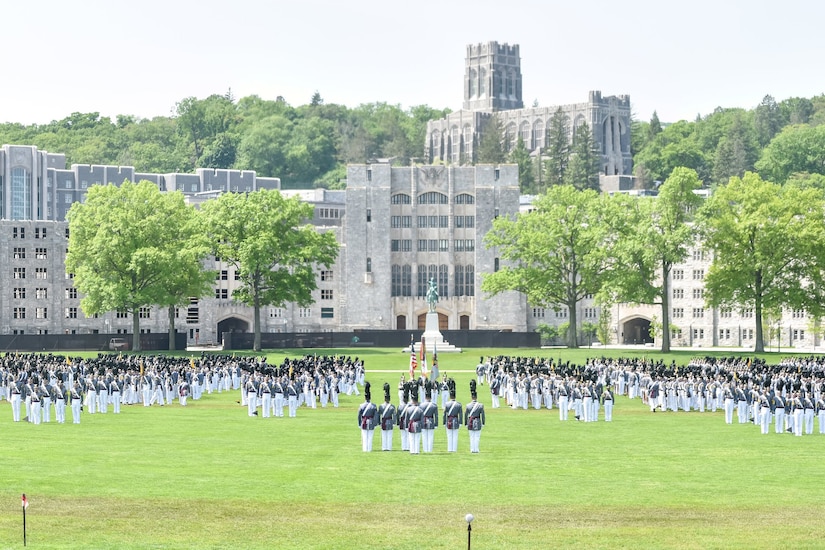By Jim Garamone, DoD News, Defense Media Activity
WASHINGTON -- Change and tradition seem mutually exclusive,
but balancing those will lead to success for the U.S. military, Marine Corps
Gen. Joe Dunford told graduating cadets at the U.S. Military Academy at West
Point, N.Y., today.
The chairman thanked the cadets for volunteering to serve.
Many of them were in day care when terrorists attacked the United States in
2001, sparking America’s longest conflict. “You chose to join an Army at war,”
he said. “To that point, today there are more than 178,000 soldiers actively
supporting missions around the world. Many are in harm’s way and they are
joined by thousands more sailors, airmen and Marines. As we celebrate today, I
ask you to keep them and their families in your thoughts and prayers.”
The cadets are being commissioned second lieutenants and
will be called on to lead soldiers in that fight.
Embrace the Constant Changes
The chairman said he doesn’t remember what the commencement
speaker at his own graduation said, but he does remember wondering if he was
going to measure up to the challenges when he entered the Marine Corps in 1977.
“The profession of arms is dynamic and to be successful you
have to anticipate and embrace the constant changes in the character of war,”
he said. “Here at West Point, you studied military history. You recalled the
price paid in the 20th century by armies that were slow to adapt.”
He noted that leaders on both sides of World War I were slow
to grasp the significance of emerging technologies and the changing character
of war. The price for that delay was 10 million in uniform were killed.
The allies on World War II failed to grasp the revolutionary
nature of the German blitzkrieg mixture of armor with close-air support, he
said.
“Frankly, if we look back at the change over the past
century, most of the changes occurred after significant failure,” he said.
But not always -- he pointed to the development of
air-mobile capabilities that preceded America’s involvement in Vietnam. West
Point alumnus like Lt. Gen. Jim Gavin, Gen. Hamilton Howze and Lt. Gen. Hal
Moore were key in developing a new capability that resulted in the deployment
of the 1st Cavalry Division (Airmobile) to Vietnam in 1965.
Adapt to Meet Those Threats
“These soldiers drove innovation that combined emerging
technology with operational concepts,” Dunford said. “They fundamentally
changed Army maneuver and their ideas remain relevant today.”
The chairman said there is no substitute “for taking a
clear-eyed look at the threats we will face and asking how our force will adapt
to meet those threats.”
For the class of 2018, change is going to be particularly
important. The pace of changed has accelerated. “In many ways, the environment
you are going to lead in is very different than the ones that confronted
lieutenants in 1918, 1968 or even 2008,” the chairman said. “Regardless of
where you find yourself serving in our Army, challenge yourself to be the kind
of leader that continues to think about, to write about and to lead change.
Bring your intellectual curiosity and the openness to new ideas that you
established here at West Point, bring that with you in your days as an Army
leader.”
But there are things that will remain the same and Dunford
told the graduates he remembers wondering how he would meet the expectations of
his future platoon, and how he would respond if called on to lead it into
harm’s way?
“The fundamentals of leadership are the most important
aspect of our profession,” Dunford said. “And they are a part of the profession
that hasn’t changed since President [Thomas] Jefferson founded this institution
in 1802.”
After West Point, the most important aspect is building
teams, not individual accomplishments, the chairman said. “Character,
competence, courage and commitment is part of the sticker price of being an
Army leader,” he said. “After West Point, you get no credit for that: It’s a
given. When you check into your units, your soldiers will simply want to know
that you will lead from the front and you will put their interests ahead of
your own.
“If you take care of your soldier, they will take care of
you,” he continued. “If you lead, they will follow and together you will take
the hill.”








